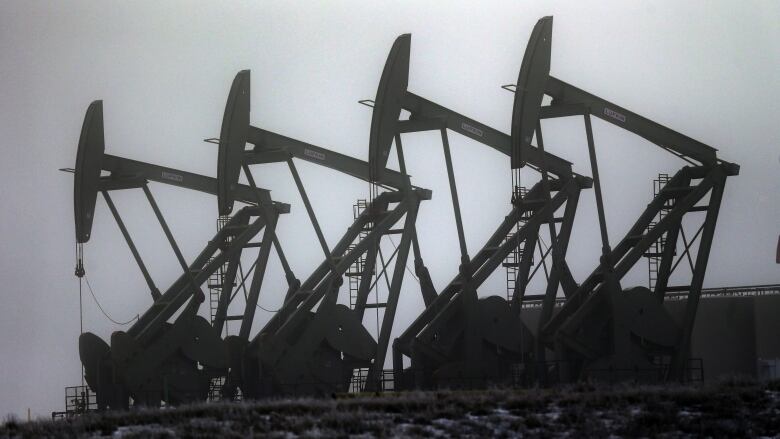Growth in oil demand slowing even as supplies still grow: IEA
oil demand is slowing down even as supply has never been greater, agency forecasts

Based on a fresh forecast of the global oil market, Canada shouldn't expect a rebound in oil prices anytime soon. They could actually fall further.
In an outlook released Friday, the International Energy Agency predicts growth in demand for oil will actually slow in 2016 to 1.2 million barrels per day from an average 1.4 million this year.
On the other end, the group's reporton the oil marketfor July says global supply is surging, up by555,000 barrels per day in June. Global oil production is now "an impressive" 3.1 million barrels per day higher than it was last year.
What precipitated a 50 per centcrash in oil prices late last year was too much oil and not enough demand. This report suggests the market could become even more off-balance, putting further pressure on the price of oil.
In mid-day trading, West Texas Intermediate was trading slightly lower on the news at $52.71 a barrel.
According to the Paris-based IEA, it's theOrganization of Petroleum Exporting Countries, or OPEC,feeding the supply. Their output is ata three-year high,led by record levels ofoutput from Iraq, Saudi Arabia and the United Arab Emirates. OPEC's oil inventory also hit a record in Mayof 2.8 billion barrels of oil.
Supply within non-OPEC countries like Canada and the U.S. is expected to grind to a halt next year, since low oil prices have energy companies making significant cuts to spending and thus production.
The IEA does expect strong consumption of oil in Asia, which could bolster the federal government's push to get our oil to markets outside of the U.S. via pipelines and ports on ourwest and eastcoasts.












_(720p).jpg)


 OFFICIAL HD MUSIC VIDEO.jpg)
.jpg)



























































































